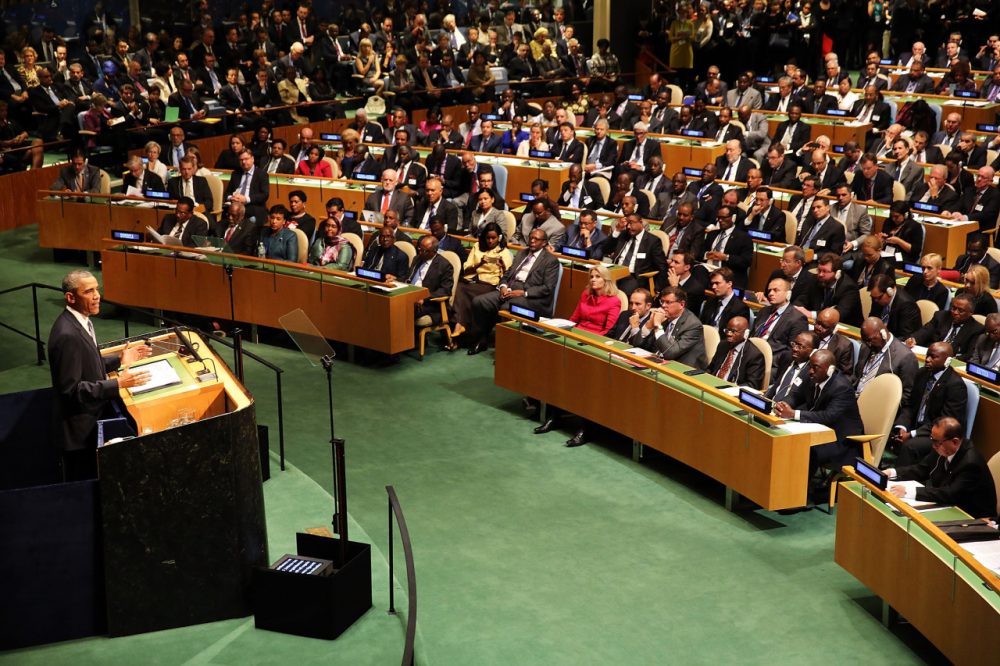Advertisement
Key Issues In The Fight Against ISIS
Resume
Declaring the world at a "crossroads between war and peace," President Barack Obama vowed Wednesday to lead a coalition to dismantle the Islamic State — or ISIS — militant group's "network of death" that has wreaked havoc in the Middle East and drawn the U.S. back into military action in the region.
Speaking to the annual gathering of the United Nations General Assembly, Obama said the U.S. would be a "respectful and constructive partner" in confronting the militants through force. But he also implored Middle Eastern nations to take the lead in addressing the conditions that have sparked the rise of extremists, including cutting off funding to terror groups.
U.S. and Arab nations that have joined the U.S.-led coalition have confirmed airstrikes against ISIS targets in Syria yesterday, the U.S. continued the strikes in Syria and Iraq today.
Anthony Cordesman, a security expert at the Center for Strategic and International Studies told Here & Now's that it's too soon to tell how effective the strikes have been.
On the Efficacy of the Airstrikes
"Some of these strikes have hit major facilities that are probably critical," Cordesman said. "Others have been essentially to get one or two vehicles. And there's been no overall assessment of what is happening, and quite frankly there can't be. It takes at least several days to make that kind of damage assessment. But what is clear: these are really major efforts to stop the Islamic State."
This is a struggle that will take years. We have to look beyond the Islamic State -- important as it is -- and realize that this is an ideological battle.
Anthony Cordesman
Cordesman says there are several key issues that the U.S. faces in order to bolster the airstrikes and have an overall successful strategy.
On Key Sticking Points
"The most serious risk is whether the Iraqi government can bring back the Sunnis and Kurds into something approaching a unified Iraq," Cordesman said. "Without that there won't be a ground element."
Cordesman says Turkey is another weak link. There is a Kurdish separatist movement in Turkey, but Kurds are a key element in holding back ISIS on the ground. In addition, Cordesman says the head of civil government in Turkey and Turkish security services and military are at odds.
On the Future
Ultimately, Cordesman says those involved and those watching need to realize this will be a protracted and complex fight.
"This is a struggle that will take years. We have to look beyond the Islamic State — important as it is — and realize that this is an ideological battle," Cordesman said. "We simply have to face the fact that this is incredibly complex, it involves a lot of risks. We're going to have to change and innovate to make it work. Because the alternative isn't simply a limited number of terrorist attacks in the U.S. or the West. It is watching the entire Middle East deteriorate and put a massive threat to the world's major source of energy exports."
The Associated Press contributed reporting.
Guest
- Anthony H. Cordesman, chair in strategy at the Center for Strategic and International Studies.
This segment aired on September 24, 2014.